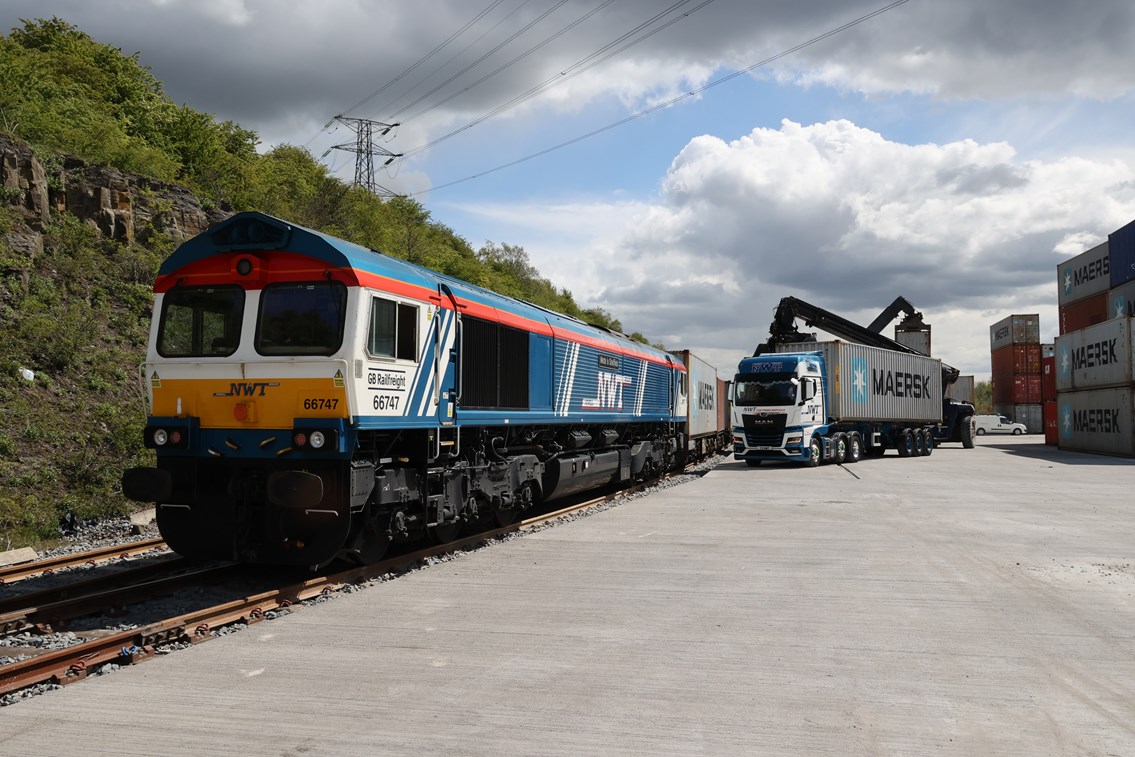Thursday 10 Jun 2021
Rail freight surges past pre-Covid levels as economy begins bounce back
- Region & Route:
- Eastern
- Figures show increase in freight train movements in Network Rail’s Eastern Region over corresponding period in 2019/20
- New scrap metal service introduced from Ilkeston to Immingham
- Sunderland Docks branch scrap metal service recommenced to cope with rising demand
- New contract to move 350,000 tonnes of waste from Barking to Scunthorpe
- New intermodal cargo terminal constructed in Sheffield
More freight is now being transported across one of Network Rail’s busiest business regions than before the start of the COVID-19 pandemic as the railway continues to underpin the country’s economic recovery.
Recent figures for the Eastern Region, which includes the East Midlands, Lincolnshire, Yorkshire and the North East, as well as the East Coast route from London to Scotland, show that there were 4,839 freight train movements in the latest reporting period, compared to 4,760 in the corresponding period for last year.
And with each freight train taking on average 76 HGVs off the roads, this increase equates to around 6,000 fewer road journeys during that particular four week period.
Throughout the pandemic, Network Rail has worked with freight operators to keep vital services moving to make sure enough food can fill the shelves in supermarkets and vital medical supplies can get to where they are needed.
Now, the rising demand for rail freight across various industries has led to a number of positive developments in recent months:
- Waste management specialists Biffa have opened a new £4.2 million facility at Barking in Essex and will send 350,000 tonnes of waste a year by rail to landfill at Roxby Gullet near Scunthorpe.
- Ward Recycling are close to signing a deal to replace the 4,000 tonnes of domestic scrap metal previously taken from Stanton Gate in Derbyshire to Immingham by 200 lorries per week with a rail freight service. A new trial service has already started running from Burton on Trent.
- The route which connects the Sunderland Docks with Rotherham and Cardiff has re-opened for the first time since the service ceased three years ago, with ten trains carrying scrap metal expected to run per month.
- A disused rail marshalling at Tinsley, between Sheffield and Rotherham, is being redeveloped by logistics specialists Newell and Wright Transport into a fully functional intermodal cargo terminal.
Kevin Newman, Senior Route Freight Manager for Network Rail, said: “The figures and these important recent developments highlight the vital role that freight has played in the country’s response to the COVID pandemic and how important it is to the recovery of the economy.
“We’ve seen an increase in demand across the iron and steel sectors and we are working closely with freight operators and the wider rail industry to make sure materials can be transported to where they are needed. Reopening routes, expanding services and gaining new freight end customers , as well as running longer, heavier trains, is helping to get more HGVs off the road and more freight onto the railway.”
ENDS
Contact information
Passengers / community members
Network Rail national helpline
03457 11 41 41
Latest travel advice
Please visit National Rail Enquiries
Journalists
Greg Moulds
Media relations manager
Network Rail
greg.moulds@networkrail.co.uk
About Network Rail
We own, operate and develop Britain's railway infrastructure; that's 20,000 miles of track, 30,000 bridges, tunnels and viaducts and the thousands of signals, level crossings and stations. We run 20 of the UK's largest stations while all the others, over 2,500, are run by the country's train operating companies.
Usually, there are almost five million journeys made in the UK and over 600 freight trains run on the network. People depend on Britain's railway for their daily commute, to visit friends and loved ones and to get them home safe every day. Our role is to deliver a safe and reliable railway, so we carefully manage and deliver thousands of projects every year that form part of the multi-billion pound Railway Upgrade Plan, to grow and expand the nation's railway network to respond to the tremendous growth and demand the railway has experienced - a doubling of passenger journeys over the past 20 years.
Follow us on Twitter: @networkrail
Visit our online newsroom: www.networkrailmediacentre.co.uk

